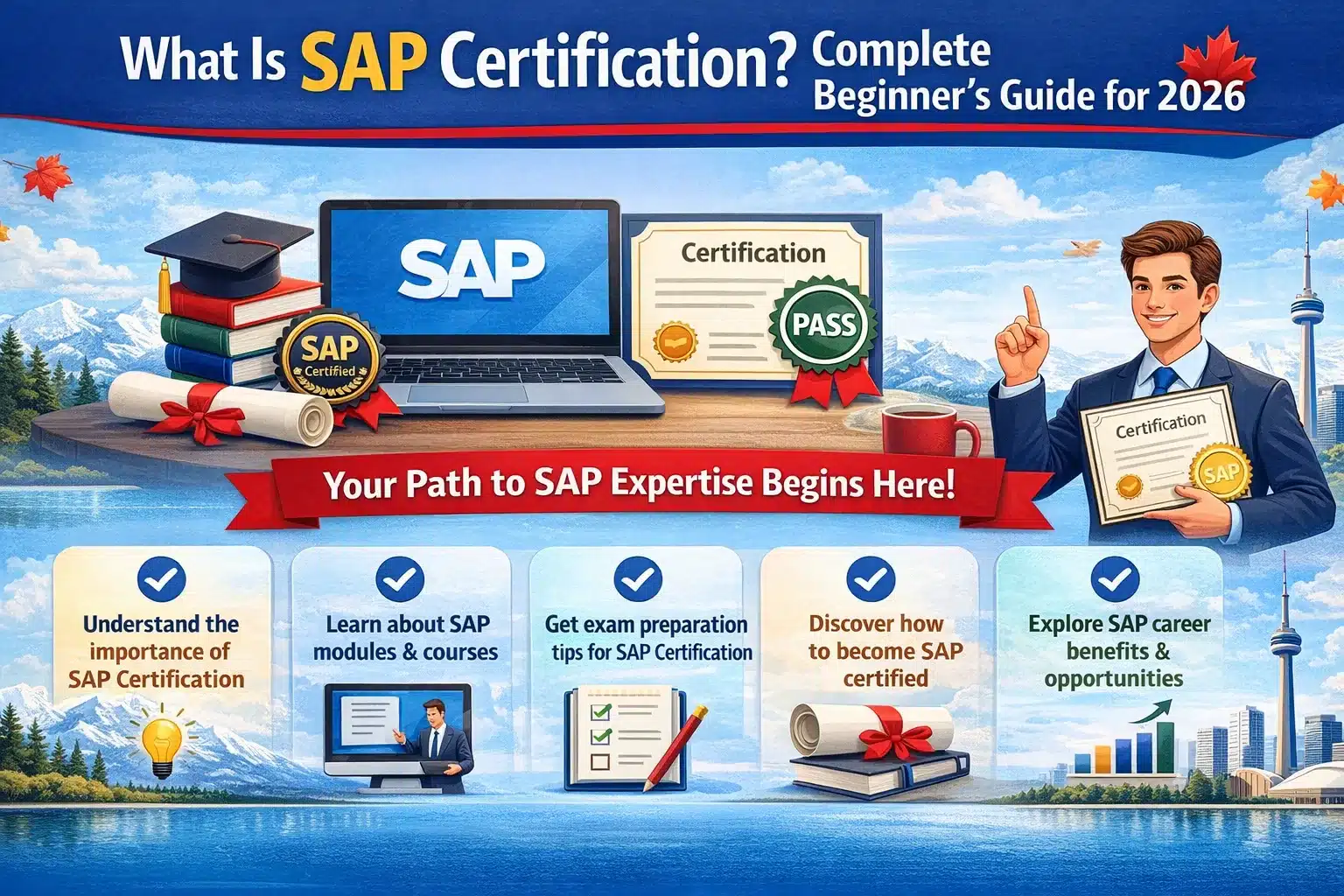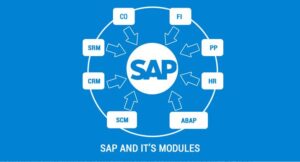SAP MM vs SAP SD: Which SAP Module Should You Learn First?
NextNow is the best SAP Training college in Canada for 16 years. They specialize in SAP MM & SAP FI/CO Training. Nextnow has trained more than 5000 people in SAP MM & SAP FI/CO, and 90% of them got jobs in SAP. SAP MM and SAP Fi/Co are the only two core and mandatory modules in SAP. All remaining modules are optional and depend upon the industry sector. Whereas SAP MM and SAP FI/CO are used in all industry sectors. SAP SD is only used in 15 % of the companies where SAP software is used, whereas SAP MM and SAP FI/CO are used in all types of industries, 100% of the companies, irrespective of industry types. SAP SD is used only in industries which do sales and distribution business, like manufacturing, retail, logistics, transportation etc.
In the current rapidly changing enterprise environment, selecting the right functional module to devote your time to can really make a difference. If you are planning to make a career in ERP systems, then you are probably looking at the likes of SAP MM (Materials Management) or SAP SD (Sales & Distribution) as your options. Both modules are central to the SAP ERP ecosystem, and getting the right certification—be it through an SAP Course or an SAP Certification path from an institute like NextNow—can be a huge plus for your career. On the one hand, MM looks at procurement, inventory, and warehousing, while on the other, SD is concerned with customer orders, shipping, billing, and revenue-related processes. The dilemma that many people encounter is: which one should be learned first? This article explores the scope, market demand, learning curve, and career outcomes of each to help you decide.

What is SAP MM?
Table of Contents
ToggleThe SAP MM modules are designed to handle all procurement and inventory functions of an organization. It covers purchasing, goods receipt, inventory management, material valuation and invoice verification activities. By mastering MM, professionals can ensure that the right materials are available at the right time, optimize working capital and integrate tightly with production planning and finance modules. If you know how long does it takes to learn SAP MM, then go and check out our blog.
What is SAP SD?
SAP SD deals with the complete order-to-coins process: from consumer inquiry and citation via order placement and delivery to shipping and invoicing. It additionally takes care of pricing, credit control, and coordination with logistics and finance. SD consultants connect sales, logistics, and billing functions together so that companies can provide products and services to customers easily, making sure their costs stay within limits and regulations are followed.
Key Facts
- The Canadian job market lists both MM and SD among the top functional modules in demand for 2025.
- Salary ranges: Entry to mid-level SAP consultants (MM/SD) in Canada can expect roughly CAD 90,000–CAD 130,000 annually. 2iresourcing.ca
- For MM specifically: Full-time consultants in Canada earn around CAD 90,000 to CAD 148,000 depending on experience, industry and location.
- Contract work remains high-income: MM consultants in Canada bill approximately CAD 100-120/hour on contract.
- Demand dynamics: Companies in Canada are engaging in many greenfield SAP deployments (rather than just upgrades), which favour functional modules like MM in procurement/logistics and SD in order-to-cash.
- A shortage of skilled SAP consultants in Canada: Employers report difficulty hiring experienced people in modules including MM and SD. montrealassociates.com+1
- Both MM and SD are listed among the “Top 10 SAP Modules in Demand in 2025” in Canada.
Comparative Table: SAP MM vs SAP SD
| Feature | SAP MM | SAP SD |
| Primary Focus | Procurement, supplier management, and inventory | Customer orders, shipping, and billing |
| Typical industry | Manufacturing, logistics, warehousing | Retail, wholesale, distribution, services |
| Key business process handled | Purchase to pay, stock movement | Order to cash, delivery, invoicing |
| Integration emphasis | With PP (Production Planning), WM (Warehouse), and FI (Finance) | With MM, FI/CO (Finance & Controlling) |
| Learning curve/job pressure | Often considered less intense and less client-facing | More dynamic, customer-centric and hence higher pressure |
| Ideal for beginners? | Yes, if you prefer process stability | Yes, if you prefer dynamic business processes |
So, which one should you learn first?
“One size does not fit all,” is the old adage a saying, but it is very true in this case also. Your decision will be dictated by career goals, personal tastes, and previous experience.
- If you like logistics, inventory movement, and purchasing, and are interested in internal operations, then SAP MM could be the perfect choice for you.
- If you thrive in areas where sales, customer interaction, pricing and delivery converge, then SAP SD will feel more engaging.
- If you’re pursuing your SAP Certification, reviewing job-market openings in your region can reveal which module is in demand. One commentary on community forums states:
- The wise approach: Choose one module to become proficient in (via an SAP Course and Certification) and then gradually add the other. This breadth gives you flexibility and makes you more marketable.
Quotes from industry practitioners
“SAP’s MM module has control over the two massive operating costs, namely the purchase of goods/services and the inventory carrying costs.”— From an industry blog.
Practical Tips for Your Learning Journey
- Go via the SAP Course’s syllabus you’ve picked: make sure sub-modules like MM-PUR, MM-IM, and MM-IV are included for MM; for SD, test that the modules of sales order processing, shipping, billing, and pricing are there.
- Look at job portals in your region and note the ratio of roles demanding “SAP MM certification” versus “SAP SD certification”.
- Consider your background: if you have experience in procurement or supply chain, MM may be easier to pick up; if you come from sales, logistics or customer service, SD fits naturally.
- Post-certification, aim to understand how the modules integrate with other SAP areas (like FI/CO, PP)—integration knowledge is a key differentiator.
- While completing your first certification, don’t ignore the potential to explore the second module later to broaden your ERP domain expertise.
Conclusion
The final thoughts are that both modules are best and provide strong career opportunities when you combine them with an earned SAP certification and the right SAP course. But the real question come arises is what suits your personality, background and career goals?. If you choose internal processes, inventory flow and procurement, go with SAP MM. But if you are strong in sales cycles, delivery, customer interaction, and billing, then choose SAP SD. Once you pick the right one and invest in the right training, you will create a solid foundation.
At NextNow, we believe in empowering learners to make informed decisions, and whichever module you choose first, make sure you’re set up for success with quality learning and certification.
FAQs
I’m new to SAP. Which module is easier to start with — SAP MM or SAP SD?
If you’re simply starting your SAP journey, SAP MM is virtually easier to start with. It focuses on substances, procurement, and stock — concepts which are trustworthy and logical. SAP SD, alternatively, includes complex pricing, billing, and purchaser-dealing with features that can be overwhelming for beginners. So sure, SAP MM is nicer than SAP SD for your first SAP course or certification.
Is SAP MM easier to learn than SAP SD?
Yes, many rookies locate SAP MM barely easier at the start because it’s extra task-oriented and less purchaser-dealing with. SAP SD entails extra complex elements like pricing, delivery, and credit control. However, once you recognize SAP fundamentals through an awesome SAP Course, each becomes practicable with practice.
Can I learn both SAP MM and SAP SD together?
You can, however, it’s great to begin with one to build a stable basis. Since MM and SD are intently related — an income order in SD can cause material motion in MM — mastering each later offers you an aspect. If you plan an extended-term SAP profession, a twin-module knowledge makes you a long way more valuable to employers.
How long does it take to complete an SAP Course in MM or SD?
A usual SAP MM or SAP SD Course takes 2 to three months in case you study often. If you’re aiming for SAP Certification, allocate extra time for hands-on exercise in SAP S/4HANA and actual global case research. The key isn’t always simply finishing the direction, but surely know-how commercial enterprise approaches.
Dont Hesitate To Contact Us
Recent Post









